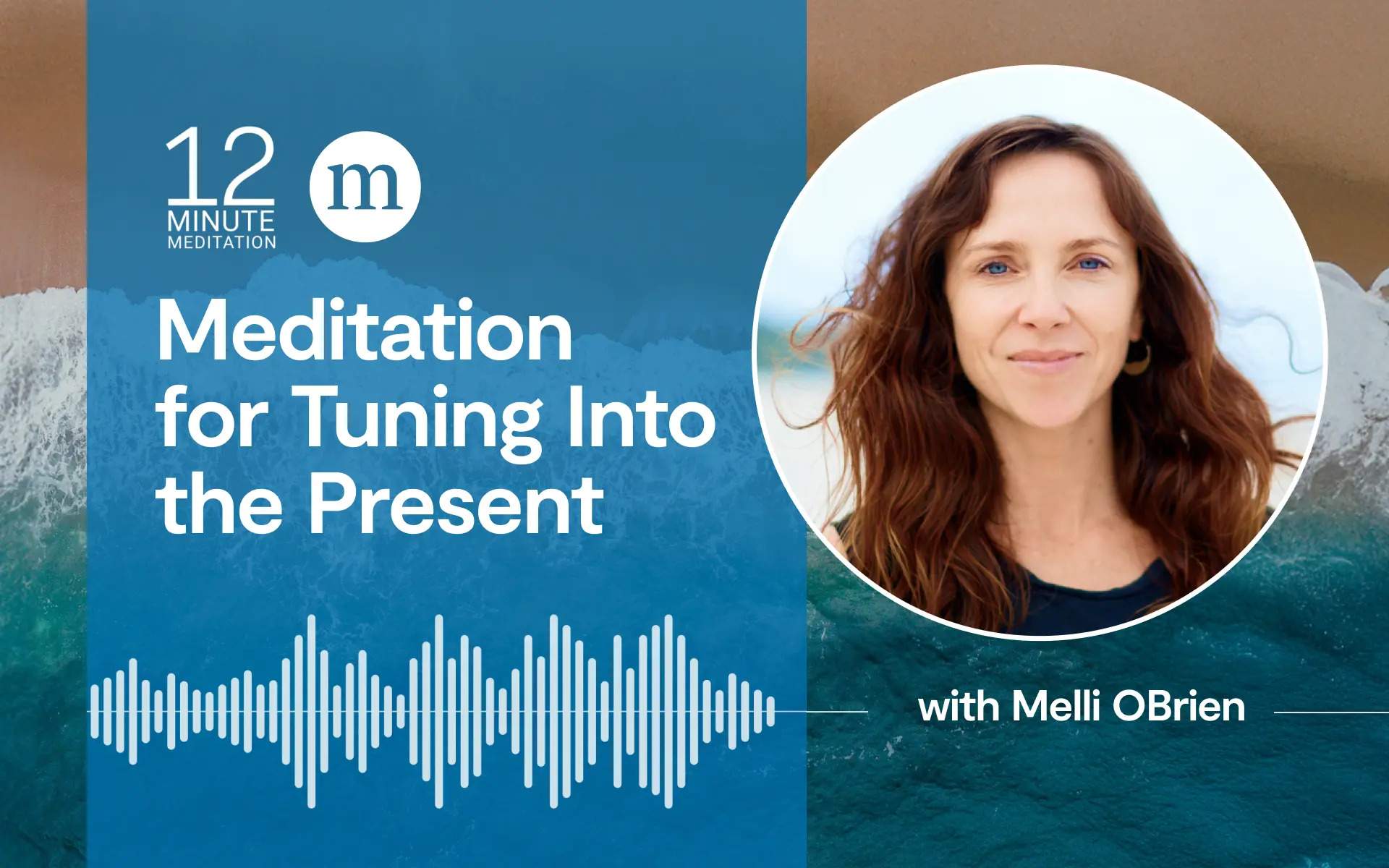Welcome to Mindful’s Point of View. I’m Barry Boyce, Editor in chief of Mindful. I’m talking today with Patricia Rockman M.D., director of education and clinical services for the Centre for Mindfulness Studies in Toronto.
Barry Boyce: The main mission of the Centre for Mindfulness Studies could be summed up as mindfulness for mental health. Would that be fair to say?
Patricia Rockman: Absolutely, that would be fair to say.
Barry Boyce: Mindfulness means a lot of things to a lot of people these days, since it’s become so popular. Why is mindfulness for mental health particularly important in your view?
Patricia Rockman: Well, I think for a few reasons. I mean, we can think of the use of mindfulness for mental health from the standpoint of prevention. So, teaching people to work with their attention, to be able to work to regulate their emotions, and their mood. We can also use it for treatment as we see with mindfulness-based programs such as Mindfulness-Based Cognitive Therapy, Mindfulness-Based Stress Reduction, Mindfulness-Based Relapse Prevention for addictions, and so on.
It’s being offered for people with bipolar and other conditions. With respect to things like depression, more of the evidence is around preventing relapse. But there is increasing evidence to support its use for acute care as well, as long as it’s not too severe.
Within the context of treatment, we’re looking at interrupting or disrupting things like rumination or obsessive thinking. We can think of certain mental health problems as being thought-disordered behaviors. We can think of thoughts as behaviors or we can think of them as sensations, but when we get stuck in patterns of thinking or even stuck in difficult emotional states or impulsive behavioral states, mindfulness can be used to disrupt these.
Barry Boyce: One of the concerns that sometimes gets expressed is that mindfulness is touted or understood by some people as a kind of panacea or cure all. How do you see mindfulness fitting into the full armamentarium, as they say, of treatments and interventions?
Patricia Rockman: Well I definitely don’t think it’s a panacea. I think it’s one of the, I don’t really like this word, but I think it’s one of the tools that we can use for working with mental disorders. In the CANMAT guidelines it’s used for depression as an adjunct treatment. It’s something we use in addition to but not necessarily replacing. The evidence for its use right now in terms of, say, working with preventing depressive relapses is that it’s equivalent to maintenance antidepressant use and there’s some early work showing that it’s equal to CBT for preventing relapse. But this doesn’t mean it’s good for everything and there are definitely some seeming contra-indications, although the research isn’t so great around that right now. But there are people I definitely wouldn’t use it for. And I don’t think it’s any better than medication. But what we can say is it can be a useful alternative for people who don’t want to take meds.
There are people I definitely wouldn’t use it [mindfulness] for. And I don’t think it’s any better than medication. But what we can say is it can be a useful alternative for people who don’t want to take meds.
Barry Boyce: Some people get concerned that people who need medication will be persuaded to get off their medication. That they can “just do mindfulness.” Some people have said that’s dangerous.
Patricia Rockman: Well I think that’s true that such blanket statements are dangerous. In the work that we do we have no desire to persuade people to get off medication. And when they come to our groups, such as Mindfulness-Based Cognitive Therapy (MBCT), or in Mindfulness-Based Risk Reduction, we tell people not to go off their medication without instruction from their health care provider. Because, A, if they do that and something goes wrong or if something changes, we don’t know what caused it. And B, they may really need it. And I think that medication, for a lot of people they have ideas that they’re weak if they take medication, so they would prefer not to. But there are definitely times when people need to be taking medication and it can be difficult to know when that is. But definitely, it has its place, as does mindfulness. But neither are panaceas.
The latter weeks of the program are about learning to turn toward difficulty to be able to build the stress tolerance for difficulty versus engaging in the kind of avoidance strategies that we tend to use when we’re faced with things we don’t like
Barry Boyce: Can you say a bit about what the center does? I know you teach clinicians as well as the general public, and also frontline mental health workers. Can you say a little bit about that?
Patricia Rockman: So we our work has really three arms: The heart of the center is to bring mindfulness-based programs to those with mental health problems as well as to those with affordability and access issues. We have a community program in which we serve those who are quite disadvantaged, people who are homeless, people who may have other difficulties around access and that program is donation based and grant based. We’ve been working in a lot of areas of the city and we also have a project in the Philippines. We work with an organization called the Parkdale Activity-Recreation Centre for the homeless. And within the context of that program we’ve done service delivery and we’ve also trained frontline workers, both to manage their own stress through mindfulness and to deliver to their peers. And we then also received a grant from The Trillium Foundation to teach frontline workers how to do Mindfulness-Based Cognitive Therapy.
We also have a separate arm in which we deliver services to the public who can afford to pay wherein we have clinicians delivering Mindfulness-Based Cognitive Therapy, Mindfulness-Based Stress Reduction, and now more recently Mindful Self-Compassion. And we stream people into those different programs depending upon need.
And then what we’re also very involved in is the training of healthcare providers. We have a certification program in Mindfulness-Based Cognitive Therapy and more recently in Mindfulness-Based Stress Reduction, in which we have some reciprocity with the University of California San Diego, because they also have a professional institute. And we have recently, with the MBSR certificate, adopted the protocol developed by Susan Woods and we use Zindel Segal’s, and his cohorts’, protocol for training in MBCT, and that’s been going very well. We offer a lot of training in that area.
Barry Boyce: So a lot of clinicians have trained in the various mindfulness-based interventions at the Centre.
Patricia Rockman: Yeah.
Barry Boyce: Parkdale is a large diverse neighborhood in West Toronto. Would say that over time the work there can become a test bed for bringing mindfulness coping skills into the street, as it were?
Patricia Rockman: Yeah, absolutely. We have programs that have been going on there for a few years now and our clinicians have done quite a bit of work in this area, working with various groups and peer groups. And there’s an ongoing group at the Parkdale Activity-Recreation Centre and I know that one of the founders of this center has been involved in developing a Collective Impact Program in the area of mental health, and that’s very much involved with the community, so I would say Yes absolutely bringing it to the street is one of the intentions.
Barry Boyce: I know that MBCT includes a significant component of inquiry.
Patricia Rockman: It does.
Barry Boyce: Could you say what that means and why that’s important in terms of mental health for people who are diagnosed, perhaps, but also for those who are undiagnosed. I mean we all have mental health issues of one kind or another.
Patricia Rockman: So, I think, this gets back to thinking about what are the intentions of working with mindfulness as a modality in this area, or working with mindfulness generally. And, while there is no question that relaxation is a component of mindfulness, I would say that within the context of working with mental health or mental disorders what we’re more concerned with are a few things: One is awareness, increasing awareness; intentionally working with attention to learn how to direct attention, to explore experience, and to be able to shift attention when necessary; we’re also working to regulate emotions; and we’re also trying to learn to regulate our behavior. All in the service of increased health, and I would say, increased compassion for self and others and increased functioning.
Inquiry is a dialogue—An interactive process, a reflective process, on an experience that has just occurred…what we’re trying to do in these programs is enhance people’s ability to be with their direct experience.
So, within the context of Mindfulness-Based Cognitive Therapy, per se, the first few weeks of the program are about awareness building and training attention, to work with the body as well as thoughts and emotions. So really getting to know the full nature of your experience. And then the latter weeks of the program are about learning to turn toward difficulty to be able to build the stress tolerance for difficulty versus engaging in the kind of avoidance strategies that we tend to use when we’re faced with things we don’t like, or maladaptive coping responses. So we’re trying to increase choice about how we might skillfully respond to difficulty rather than reacting automatically or engaging in habitual automatic patterns that may be harmful or at least not helpful to us.
So inquiry, then, is part of that process. The guidance of the meditative practices and the cognitive exercises entail guiding people to work with their attention in a variety of ways and also to begin to separate or parse their experience into its components of thoughts, emotions, body sensations, behaviors, or impulses to act. And by doing so, we begin to make difficult situations that are often overwhelming more manageable because we can learn to intervene with mindfulness into various aspects of our experience.
So, for example let’s say you’re driving in your car and somebody cuts you off in traffic. And you might normally get really angry, get all of your sympathetic nervous system fired up, start banging on the horn. And you don’t even realize that you’ve done this and then you’re in a bad mood for the rest of the day. So, mindfulness is really working to try to help people to recognize when this whole kind of cycle might start up and how they might begin to interrupt that, and then what they might do next. So it’s not really, in my opinion, to get rid of reactivity, or a bad mood or low mood or anxiety, but rather what do you do when these things start to show up? And to learn to recognize early warning signs or symptoms or signs before they take hold so you have more options about what to do next. So, it’s a long-winded way of then getting to the inquiry.
So, inquiry is a dialogue— An interactive process, a reflective process, on an experience that has just occurred. If we understand that what we’re trying to do in these programs is enhance people’s ability to be with their direct experience versus what we normally do, which is to immediately have interpretations, ideas, conclusions, judgments about our experience—We move very fast away from the direct experience.
If mindfulness is trying to help us get close to our experience, then inquiry is partly designed to help people to be able to enhance their capacity to reflect on the unfolding nature of experience and learn to track that experience without running off into storytelling or narrative or other ideas and conclusions. So we’re trying to enhance people’s ability to develop a language of experience, a vocabulary of experience—Whether that’s describing their sensations, being able to describe their thoughts versus analyzing them, being able to name emotions in an attempt to manage them better and make them less overwhelming, and to begin to see how the body is a source of information and a place that holds the sensory correlates of emotion.
So, we’re not so locked up in our thinking but rather we are getting access to our moment-to-moment experience.
Barry Boyce: So when you say the sensory correlates of emotion, you mean something like, you begin to notice your chest tightening, rather than that just saying, “Oh, I’m pissed off.”
Patricia Rockman: Yes exactly. Exactly. So, maybe that’s the first thing you notice is chest tightening, or maybe the first thing you notice are your thoughts, or maybe you the first thing you notice is the naming of the emotion. But if you begin to identify the physical components of the experience you can then begin to learn to bring your attention here and begin to explore this. So, inquiry is designed to help people begin to understand the how, what, where, and when of experience, but not the why.
Because the why pitches up into cognition and into thinking about and narrating our experience. And this is not to say that these are bad things, because without our prefrontal cortex an ability to judge and to plan and to have a sense of self we would just be really chaotic. But if we’re too focused in this way of being in the world, what Zindel and others call “doing mode,” then we can become really rigid. So by learning to attend to our moment-by-moment experience, we have another place from which to witness experience and also act upon it. But if you were only focused on your moment-to-moment experience you’d never get anything done, you’d just be super chaotic.
Also in this podcast:
- The hype surrounding mindfulness today
- Who should and shouldn’t use mindfulness-based interventions
- Why mindfulness teachers need to take some kind of Hippocratic Oath
- The difference between your discerning mind and your judgmental mind
- Training our attention to be open and receptive








